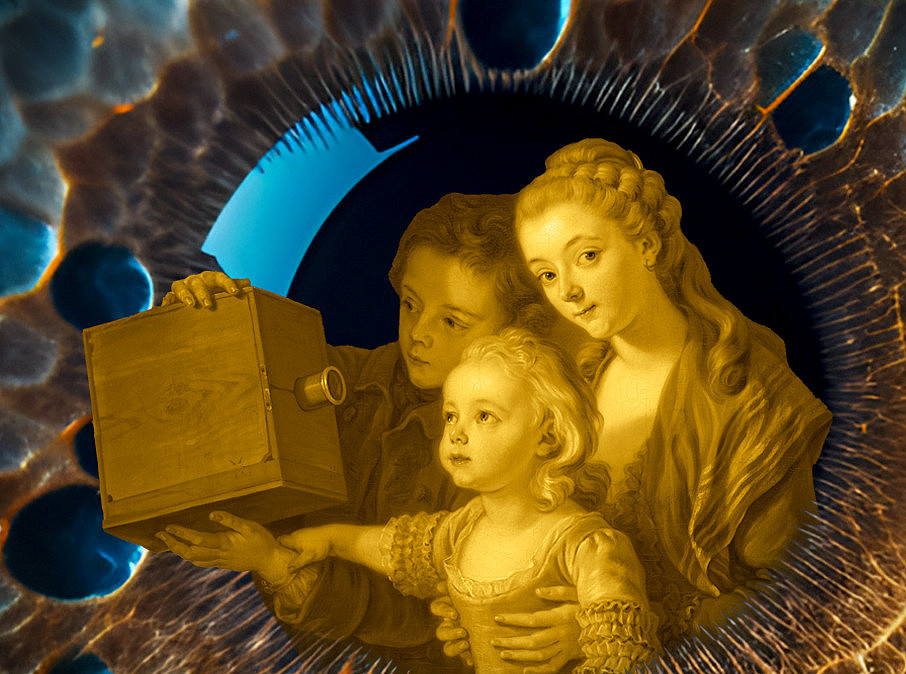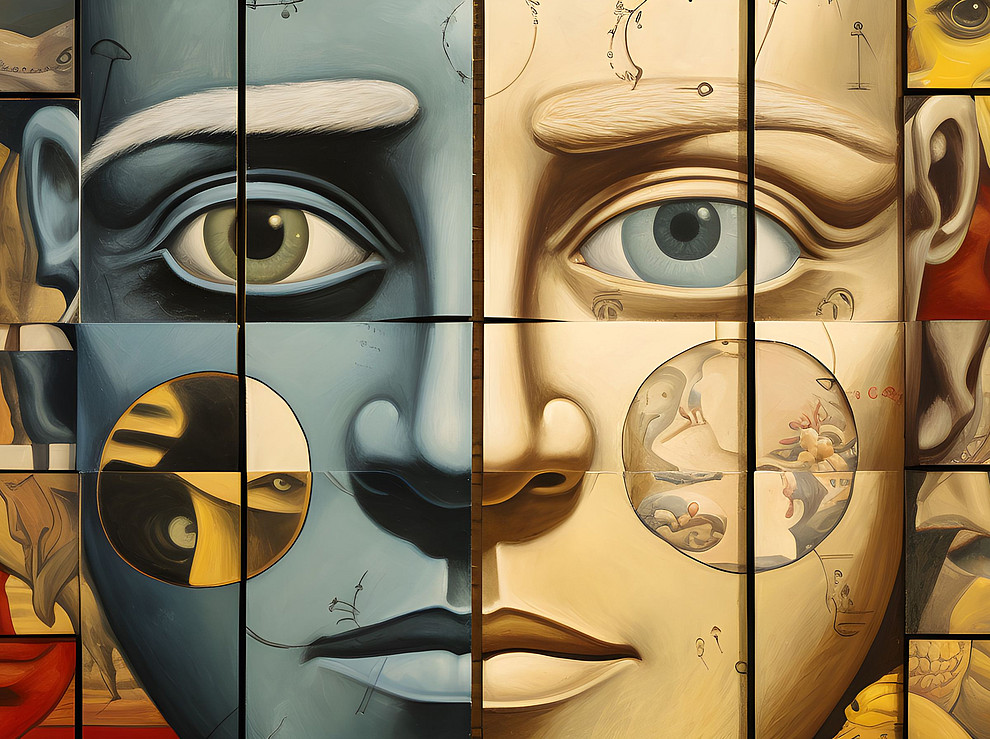Cluster 2: Perception and identity: cultural transformation and (historical, aesthetic, moral and political) education
Under the real conditions of human (co)existence, identity formation is neither a self-explanatory nor an uncontroversial objective. In the present research context, identity is of interest as an ambivalent and often - individually as well as collectively - unconscious goal that is exposed to a variety of obstacles, conflicts, and forms of failure. In this respect, the interest of the humanities and cultural studies in the cognition of identity is characterised by a critical approach: it is concerned with identity as ambiguous, malleable, and questionable; with identity under conditions of permanent challenge and revision.
As a concept, identity is therefore changeable and in need of change. Identity has and continues to influence history and can only ultimately be understood in its emergence in specific time and space structures: in its historicity.
The cluster 2 group works on this historicity, both with a view to individual achievements and failures of consciousness, as well as with a view to collective identity formations and struggles, including their cultural-transformational effects in the various pasts, presents, and possible futures.
In all contexts, the question of how individualisation and group formation or, more generally, subjectivation and socialisation processes are interlinked, and to what extent research into the relationship between perception and identity can contribute to a better understanding of these connections is of interest.

The focus on perception and identity is intended in particular to shed light on and analyse the connection between perceptual performance (according to the expanded understanding of "perception") and the complexities of learning and education from a multi-perspective, inter/transdisciplinary viewpoint. This is foreseeably productive for special research questions and fields as well as an indispensable basis for developing a time-diagnostic and critical view of the framework conditions and social dynamics of our current society and culture from the position of a humanities canon.
One of the relevant debates here is to ask about the implications of the current identity policy discourse with regard to the idea and methodological concept of scientific research. There is no question that this requires a retrospective reassessment of similar discourses in the 20th century (e.g. the fact/value dichotomy and the thesis of value-neutral science launched by Max Weber) and confirms the relevance of (scientific) historical studies.

Cluster 2 is thematically divided into two subgroups, which a) deal with processes of individualisation in consciousness (forms, obstacles, strategies of the search for identity qua constitution of meaning) within the framework of a phenomenological concept of intentionality and b) with processes of cultural transformation through and in variable media (art objects, language, literary texts). The assignment is not understood as exclusive, but rather as mutually permeable focal points in the overarching thematic field of self / other, self-perception / perception of others, individualisation / socialisation, perceptual / imaginary meaning formation, conscious / unconscious. Accordingly, the guiding theme of perception and identity is not understood statically, but processually, both in its historical and cultural dimension as well as in its philosophical foundation and existential significance. The focus is particularly on fault lines and discontinuities, dangers and various forms of ambivalent failure/success in the associated processes of meaning formation (e.g. individual strategies of coping with dissonance with the help of self-deception; unintended and possibly paradoxical effects of collective and individual identity practices). According to this approach, "identity" on both an individual and collective level (societies, nations, cultures) refers to a constantly unfinished, fragile, context-sensitive and often imaginarily over-formed formation of meaning. Self(-)discovery and self-transgression are inextricably linked and play into each other.
Exemplary research topics at a glance:
- Ensemble Formations in Visual Art and Architecture as a Meaningful Medium of Historiography (Julian Blunk)
- Burgeoning Selves: Transatlantic Dialogue and Early American Bildungsliteratur, 1776-1860 (Stefan Brandt)
- Perception in Colonial Patterns of Thought (Jennifer Brunner)
- Self-signalling in agency and moral psychology (Denis Džanić)
- Self-perception of persons and self-deception. Psychoanalytical and phenomenological conceptions of repression and explication (Bernhard Geißler)
- Being different and becoming different. Identity designs as educational history(ies) of the historical (Christian Heuer)
- Emotional self-evaluation. On the dynamics of external and self-perception using the example of pride and arrogance (Sonja Rinofner-Kreidl)